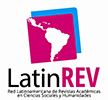Editorial Parchment | v. 2, n. 1, 2022
ARK:
https://n2t.net/ark:/35231/pergaminho.v2n1.35Keywords:
AICLA, Itapecuru Mirim, Maranhão, Brazil, ParchmentAbstract
The task of preparing the editorial for the second issue of the journal Pergaminho, of the Itapecuruense Academy of Sciences, Letters and Arts (AICLA) is quite pleasurable, as it refers to two basic situations. The first is that, in a “sea” of scientific and cultural journals that periodically appear in the country, in a period when science and culture have been so questioned, reaching a second issue means having made a good start and already having the possibility to go through a circuit with all the difficulties and dangers that this route requires, especially when this magazine is part of the work of an academy with little time of existence and established in a municipality in the interior of Maranhão.
The second situation is being in the position of editor of the magazine as a mediator of the texts chosen by the editorial board to present them – the texts –, and represent them – the other editors. And so, to make the material produced by the contributing writers and scientists of this issue of the journal available to the public that has been associated with AICLA since its foundation and with the journal Pergaminho since its launch.
In this issue we bring together texts in the form of scientific articles, poems, short stories and chronicles, as well as an interview following the Academy's own logic of bringing together science, letters and the arts in the same space. The themes of the scientific articles range from the problem of fishing in the Itapecuru River, which is the main theme related to environmental issues in the municipality, through the issue of linguistics, to reaching education as the most worked topic among the texts presented.
The first article deals with “Primary public education in Maranhão: the 19th century period from the legal system”. In the text, the author, who is also an academic, analyzes how public education in that period worked against its own foundation, which is the socialization of teaching, providing all people with access to education. The other article that deals with the topic of education and is presented next, discusses remote teaching as an alternative during the pandemic period in the text entitled "Remote teaching: reflections on supervised internship in times of pandemic". The author analyzes this teaching method from the experience of undergraduate students, pointing out the advantages and disadvantages found by students and teachers discussing, as well as what can be improved so that students can obtain better results in this type of teaching that will be present in all areas of education even after the return of face-to-face teaching.
The following article is a presentation of predatory fishing in the Itapecuru River in the geographic area of the municipality of Itapecuru Mirim. The author immerses himself in the discussion on the subject to the point of identifying that the waters of the river are dissected from one extreme to the other to show how much the work of professional and amateur fishermen has been destroying biodiversity, which has already led to almost disappearance of species important both economically and strategically for the survival of life in the river.
In the following text, the theme is literature, with the author studying “The uirapuru: children's literature through the charm of music and poetry”. The text relates the poem by Humberto de Campos with the music of Jacobina (Valdemar Ramos Oliveira) and Murilo Latini and is based on the poem to make a relationship between music and poetry, demonstrating how the study of poetry can become more interesting when combined with music. .
In the text “Cinema, loudspeaker and newspapers of Itapecuru Mirim”, the academic Benedito Buzar makes a historical tour of the media of Itapecuru Mirim after the implementation of electric energy in the city at the end of the first half of the 20th century and the installation of vehicles that from the cinema, through loudspeakers and newspapers to the arrival of television in the late 1960s.
The texts are completed by the poem “A Ponte” by the academic Benedita Azevedo and three more poems by the poet José de Mota de Souza and the short story “Sonhos e delírios em Barreirinhas”. Finally, an interview with the writer, retired professor at UFMA (Federal University of Maranhão), member of the Academia Maranhense de Letras (AML), Ceres Costa Fernandes, sent by Gabriela Santana, concludes.
Downloads
Downloads
Published
How to Cite
Issue
Section
License
Copyright (c) 2022 Itaan Santos

This work is licensed under a Creative Commons Attribution-NonCommercial 4.0 International License.


